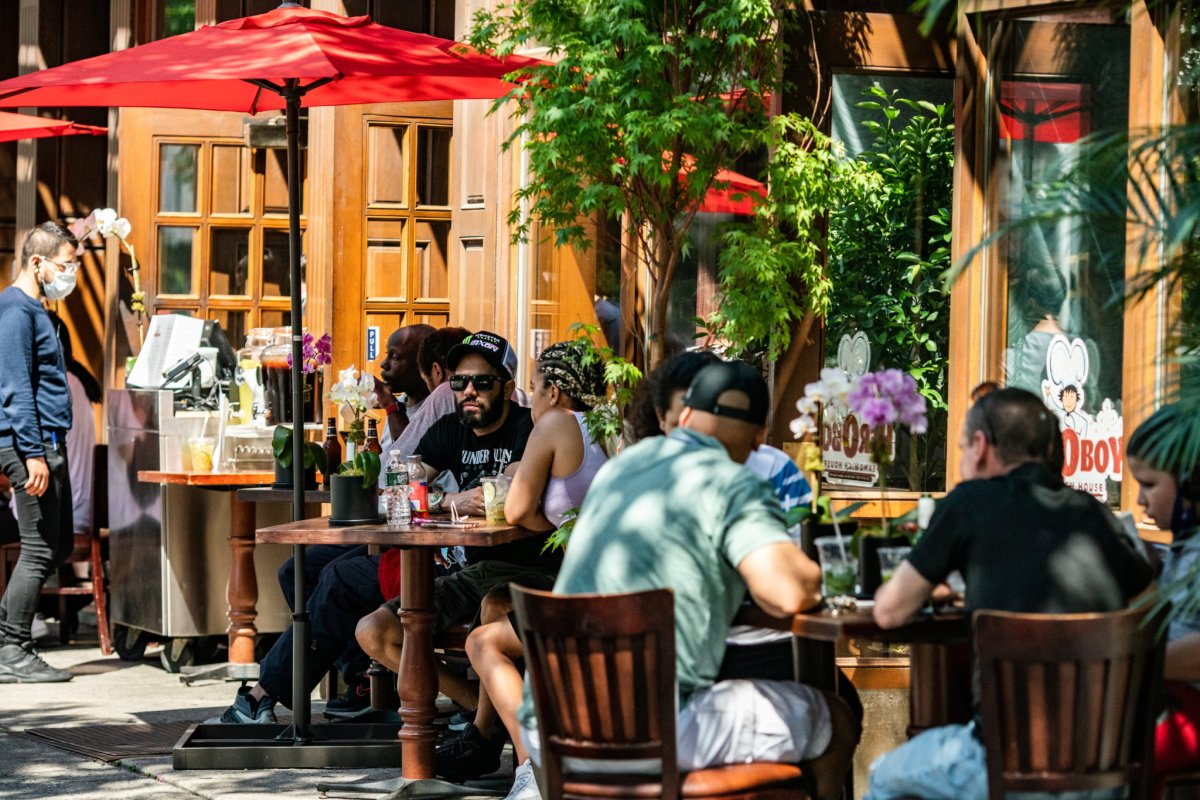After confirming Mayor Bill de Blasio’s announcement Wednesday of delaying the resumption of indoor dining during New York City’s Phase 3 reopening scheduled for July 6, Governor Andrew Cuomo had choice words for “local governments” and their handling of social distancing.
The dining delay will only affect New York City, the governor said, as some regions such as the capital region move into Phase Four of reopening and parts of the state implemented indoor dining weeks ago.
“It’s going to be postponed until the facts change and it is proven to open,” Cuomo said during a press briefing. “The facts have to change because at this point it is imprudent.”
Cuomo expressed frustration with local governments handling of social distancing requirements and made thinly-veiled jabs at the mayor’s announcement made earlier in the day.
“Local governments don’t have any legal authority to determine openings reopening of schools, businesses, restaurants offices, that’s not what the local governments do,” he said. “That’s a function of state government.”
Cuomo complained local governments were slacking in their enforcement of compliance with social distancing, citing crowds of young people around the five boroughs, and announced the state would be forming its own enforcement department that will supplement local police departments. The governor said he fears a lack of enforcement combined with a lack of compliance from New Yorkers could lead to a resurgence in the virus.
“If you have citizen compliance dropping, and you don’t have local governments enforcing, then you’re going to see the virus go up, period,” Cuomo said.
The backtracking on indoor dining comes as states across the country are seeing huge upticks, with countless outbreaks tied to crowded bars and restaurants. An analysis by JPMorgan found that states with higher restaurant spending had outbreaks of the virus three weeks later, with in-person restaurant spending “particularly predictive.”
Hospitality groups said they respected the government’s decision, but that more needed to be done to prevent New York’s eateries from going belly-up while they operate at a reduced level, such as rent relief and expanded outdoor dining.
“The longer neighborhood restaurants and bars are forced to be close, the harder it will be for them to ever successfully open,” said Andrew Rigie, executive director of the NYC Hospitality Alliance. “This makes it even more urgent to forgive rent, expand outdoor dining, and enact other responsive policies to save our city’s beloved small businesses and jobs.”




































